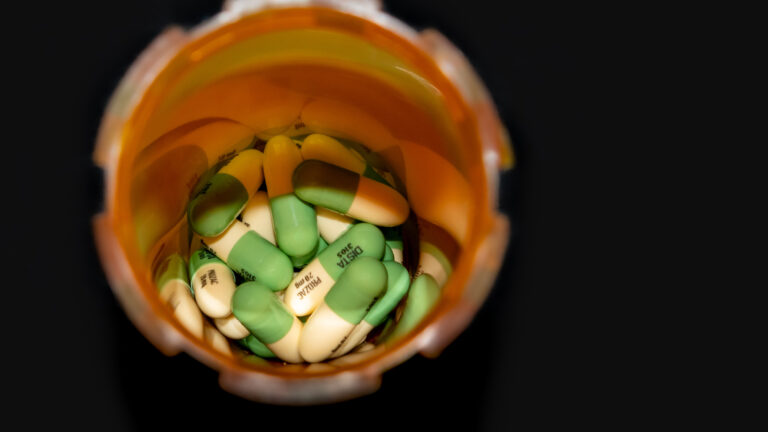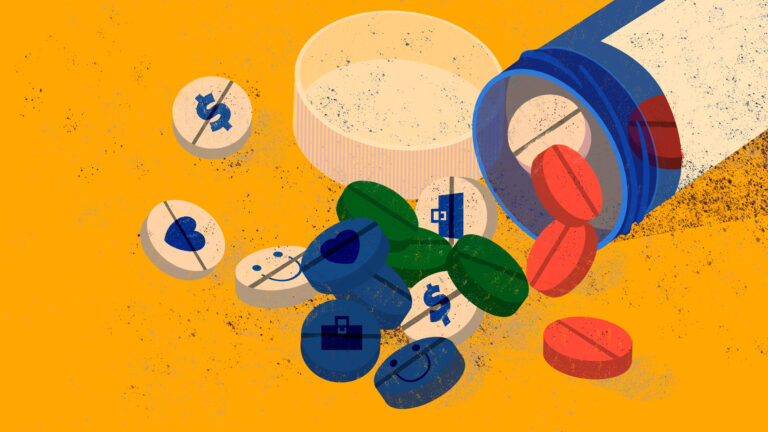Here is a short list of things that have made me cry recently:
Trying to explain a scene from “The Lion King” to my mom.
Missing my mom when she went back to Ohio after a long visit with me and my baby in New York.
Describing to a friend how many New Yorkers volunteer to help me carry the baby’s stroller up and down the subway stairs, and how diverse the range of people who help me is, and how it makes me appreciate the no-nonsense communal spirit of this city, where people take care of each other without even breaking their stride.
Thinking about what an emotional movie “Inside Out” is — I wasn’t thinking about what actually happens in the movie, I was thinking about how the movie made me cry, and I cried.
From these incidents, you might conclude, rightly, that children’s movies are my Achilles’ heel. What might be less obvious is that I’m crying more these days because I recently tapered off antidepressants after nearly 10 years. Escitalopram (the generic version of Lexapro) had long helped improve my mental health with minimal side effects — apart from stopping up my tear ducts. Now I’m in the process of discovering what my mind is like without the assistance of medication.
My decision to go off escitalopram, under supervision from my doctor, happened to coincide with a surge in public scrutiny of antidepressants, fueled in part by the Make America Healthy Again movement. Last week, the Food and Drug Administration convened a panel of experts to discuss the potential risks of taking selective serotonin reuptake inhibitors (SSRIs) during pregnancy. (A number of mental and reproductive health experts criticized the panel, saying that members known to oppose the use of antidepressants during pregnancy, or at all, shared misinformation. These experts say the medications are safe.)
Meanwhile, health secretary Robert F. Kennedy Jr. said during his Senate confirmation hearing that he’s known people who have “a much worse time getting off SSRIs than people have getting off heroin,” and President Donald Trump signed an executive order in February instructing the MAHA Commission to investigate whether antidepressants are being overprescribed to children.
Concerns about the effects of antidepressants, and the difficulty some people encounter in attempting to go off them, are also in the broader zeitgeist. The New York Times this spring profiled Laura Delano, who runs a nonprofit dedicated to helping people reduce or quit psychiatric medications, as an example of how “an online DIY subculture focused on quitting psychiatric medications has expanded and begun to mature into a service industry.”

An unusual FDA panel on antidepressant use during pregnancy elevated skeptics of the drugs
And researchers are working to better understand the withdrawal symptoms that some people encounter when they try to give up antidepressants, with one recent systematic review suggesting they’re not as prevalent or severe as is often thought. (An important distinction: Some symptoms may be related to drug withdrawal, while others may indicate the recurrence of the anxiety or depression that people were taking medications to treat in the first place.)
From my perspective — both as someone who’s taken antidepressants, and as a reporter at STAT — the conversation about the drugs demands nuance. The right medications can be life-changing, even life-saving, for people with mental health conditions, as the American Psychiatric Association and five other mental health groups noted in a joint statement after Trump’s executive order. It’s also true that some people may experience side effects that they decide outweigh the potential benefits, and that tapering off medication can be tricky.
There are health professionals far better equipped to parse the research on these issues than I am. But I can say that in my own experience, taking antidepressants was the right decision — and while going off them wasn’t exactly easy, it’s also proved possible.
I started taking escitalopram when I was living in New York in my early 30s, feeling alone and unmoored, like George Clooney drifting away into space in “Gravity.” Clooney faces his fate with square-jawed resignation, but my despair and dread as I made scrambled eggs or squeezed onto a packed subway car was much less cinematic.
I’d worried that antidepressants might make me feel numb. But I could still feel the full range of human emotions just fine; as my therapist put it, medication just took the edge off. With the volume on my harsh inner voice turned down, I could focus on making changes. I moved out of an apartment I’d found on Craigslist, which I shared with two roommates who were already friends with each other when I moved in. They weren’t mean; it was just as if I wasn’t there.
I found a new apartment in a brownstone on a leafy block, a studio with an alcove and a bay window and a bathroom I shared with an artist from Estonia who filled it with plants and left a little welcome bundle of homemade gingerbread cookies in a plastic bag hanging from my doorknob. I went jogging with her, made new friends at a new job, felt my career taking shape. Relief: I existed after all.
I’d go back and take Lexapro again in a heartbeat. But while I’d never imagined staying on it forever, it turned out to be hard, once I’d been feeling better for a long time, to figure out how and when to try going off.
I attempted it once, back in 2018, without proper supervision, mostly because I was abroad for a few months and hadn’t figured out a plan for getting the medication overseas. (Definitely do not do this.) I’d wake up every morning with a weight on my chest.
Back in the states, I went right back on medication. I got a dog, drank less, took an improv class, ate pie with friends straight from the box in the gold glow of the Lightning Field in New Mexico. But after about a year, as I started to think about going off of it again, the pandemic hit: Not an ideal time to start experimenting with what else your brain can handle.
Soon I was also doing IVF, which meant I needed all the mental health help I could get. And when, at long last, I got pregnant, my doctors didn’t think it wise to go off medication during such a vulnerable time. (The American College of Obstetricians and Gynecologists says that SSRIs are safe during pregnancy and that the risks of untreated depression are far greater for both parent and child.) The same logic applied to my first year postpartum, a period when so many women struggle with depression and anxiety.

Getting off antidepressants isn’t as risky as is widely believed, review suggests
So it was only this spring that the timing to taper off medication finally seemed right — this time with a clear plan to lower the dose little by little and under my doctor’s watch.
I had withdrawal symptoms for a few weeks; my brain was both slower to construct a sentence on the page and quicker with self-criticism. But the symptoms lifted. And here I am on the other side: a lot like myself on antidepressants, though maybe with sadness taking up a little more space on my emotional palette. And somehow even more of a softie, thanks to my newly unclogged tear ducts.
I don’t know how this story ends. I may go back on antidepressants at some point, whether because my mental health has dipped or because life has gotten hard again, which I’m sure it will. Perhaps we as a society should give up on the language around quarter-life and midlife crises, which implies we’re enjoying long periods of stability in between, and talk instead about life as one big series of crises and losses, hurts and upheavals, though with love and lightning fields and strangers helping you up the subway stairs mixed in, too.
For now, what I feel is gratitude to the medication that helped me through the last decade of my life. The truth is that I was never George Clooney, floating out into the dark without a tether. But it was antidepressants that let me see what I could reach out and grasp.
A version of this essay first appeared in Sarah Todd’s newsletter, “For or Against.”

